15 de enero 2021

Children of Exile: The Births “Sowing Hope” in the Camp of Nicaraguan Farmers

PUBLICIDAD 1M
PUBLICIDAD 4D
PUBLICIDAD 5D
The unfulfilled democratic promises, the establishment of an authoritarian regime and a bloody dictatorship, sustained by a police state
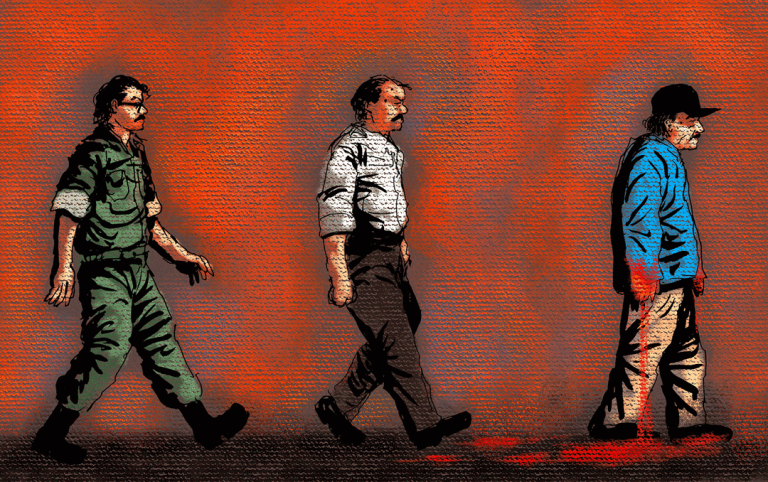
The unfulfilled democratic promises
On January 10, 2021, Daniel Ortega will celebrate fourteen consecutive years as president of Nicaragua, after returning to power in January 2007. Ortega arrived with the promise of a "government of reconciliation and national unity," but the country is polarized as never before.
For the third consecutive term, Ortega is sustained by a bloody dictatorship. After the massacre and repression of citizen protests during the April Rebellion in 2018, his regime has imposed a de facto police state that persecutes and besieges a divided opposition, ten months away from a general election scheduled for November, which has not yet been called for.
CONFIDENCIAL summarized fourteen changes that the Ortega regime has promoted in fourteen years, annulling the democratic system, in order to hang into power together with his wife Rosario Murillo, as vice president and spokesperson.
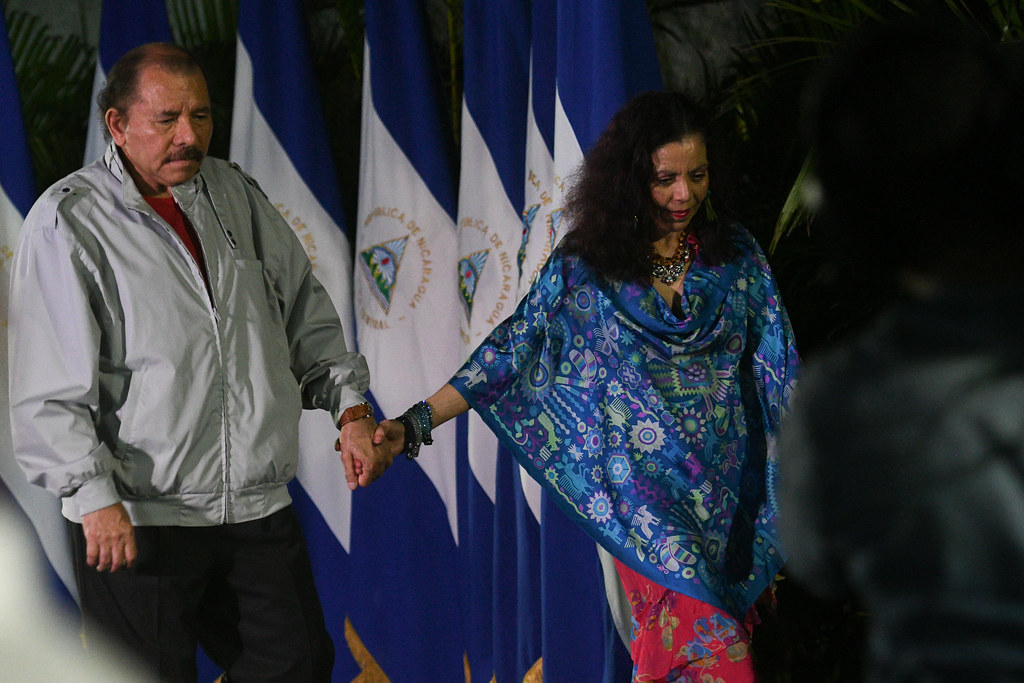
Daniel Ortega and Rosario Murillo, walk together on the day of the presidential elections in 2016. Photo: Carlos Herrera | Confidencial
Benefitted by the pact with former liberal president Arnoldo Aleman, with whom he divided the powers of the State twenty years ago, today Ortega controls all the instances with a large majority, thanks to electoral frauds documented and denounced in 2008, 2011 and 2016. The control of the riot squads of the National Police and the complicit silence of the Nicaraguan Army has also allowed him to violate the citizen's rights of Nicaraguans.
You might want to read: A Proposal for a Future Democratic Government in Nicaragua
Under the argument of power to the people, in the first year of his government, he created the Councils of Citizen Power (CPC), which today act as forces of espionage against any kind of demonstration or protest or any dissent or complaint even among public servants.
Ortega controls the National Assembly, which passes all his initiatives, the collapsed electoral system, and the Supreme Court of Justice (CSJ) as well as its dependencies that serve as a factory for crimes against the opposition.
The promises of development through Venezuela's multi-million dollar cooperation have also been reduced to waste through corruption with State funds and private business, which has even been met by sanctions from the U.S. Treasury Department.
One day after his return to power, Ortega incorporated Nicaragua into the Bolivarian Alternative for the Americas (ALBA) and obtained an agreement that allowed him to import ten million barrels of oil per year from Venezuela. With the agreement signed within the framework of PetroCaribe, in March 2007, he created Alba de Nicaragua S.A (Albanisa), with the participation of the Venezuelan PDVSA (51%) and Petronic (49%), constituted as a private company.
Ortega thus "privatized" more than 3.86 billion dollars of the oil bill without any kind of accountability or public scrutiny, while with Venezuela’s permission, he encouraged the emergence of Albanisa, the new economic group, which has a decisive weight in the national energy sector and private businesses controlled by the presidential family.
Ortega imposed an authoritarian corporatist system, to co-govern with big business, at the expense of transparency and on the margins of democratic institutions.
For more than a decade, he maintained a "consensus" relationship with the main businessmen to negotiate economic issues without any middlemen. Ortega allowed them to do business and exempted them from some taxes, while he took full power. The Consejo Superior de la Empresa Privada (Cosep) influenced the approval of 124 laws from 2008 to 2017 and obtained representation in more than 40 public institutions. This "model" was broken in 2018, by the state massacre against the April Rebellion.
We recommend this opinion article: Are Free and Competitive Elections Possible in Nicaragua?
However, in the words of the president's economic advisor, Bayardo Arce, the regime will seek "how to sit down" with the "business sectors" in January 2021, to review - he said - the tax reform approved in March 2019, while talking about an "electoral reform with the political forces".
Once in power, Ortega made his intention to remain in the presidential chair clear, despite the fact that the Constitution had locks in place against reelection.
For the 2011 elections, Ortega has reelected after the Sandinista magistrates of the Constitutional Chamber of the Supreme Court of Justice paved the way, declaring Article 147 of the Magna Carta, which prohibited reelection, unconstitutional. In 2014, a constitutional reform annulled said article, and two years later, in 2016, Ortega imposed his wife as vice president, making a family regime official.
With an election year coming up, Ortega has now ordered a new proposal of reforms, which will be limited to changes that will not guarantee the demanded free and transparent elections according to FSLN sources. Meanwhile, he has imposed "political inhibition" against those he considers to have participated in the "failed coup attempt", as his regime refers to the April Rebellion.
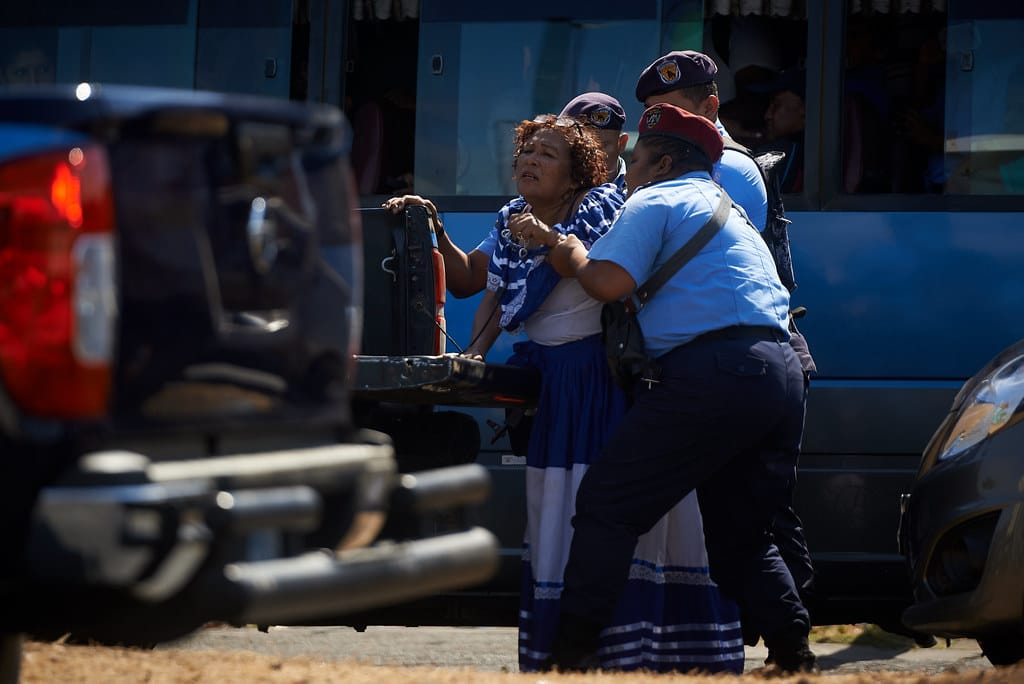
Flor Ramirez, dressed in blue and white traditional clothes, being detained by police during a 2018 protest. Photo: Carlos Herrera / Archives.
To stay in power, Ortega has relied on the co-option and partisanship of the Nicaraguan National Police and Army.
Ortega maintained first commissioner Aminta Granera as head of the Police for two mandates, disregarding the Organic law through a presidential decree. Granera left the post eleven years later, relieved by Francisco Díaz, the father-in-law of one of Ortega and Murillo's children.
You can also read this opinion article: Nicaraguan Stories: Dreams, Struggles, and Tragedies
Within the Police and Army, Ortega has used the reelection of chiefs and high ranking officers, while both institutions have chosen to ignore the creation of paramilitary bands that have imposed death and terror in the streets and cities and also in the rural areas and mountains, wherein 2020 more than thirty peasants were killed.
In February 2020, Army General Julio César Avilés began his third consecutive term as head of the military institution, after Ortega extended his term twice.
In order to maintain control of the Electoral and Judicial Powers, Ortega keeps his magistrates in office, with the support of an Orteguista steamroller in the Assembly, which approves its laws in an expeditious manner and without debate.
For more than a year and a half, the top leaders of the Supreme Court of Justice (CSJ), the Supreme Electoral Council (CSE), and the General Comptroller's Office (CGR) have continued operating after their constitutional periods expired. The government foresees a "movement of chips" at the top of these powers. In the Supreme Court, 12 out of 16 judges are in expired posts, there are four vacancies due to death or resignation, and three of the 12 expired judges have already exceeded the age limit for reelection.
In the CSE, seven out of nine magistrates are in expired posts, and there is one vacancy corresponding to its former president Roberto Rivas, who held the position for 23 years, in charge of the FSLN fraud machinery.

A group of journalists being attacked by the National Police in February 2020. Photo: Carlos Herrera | Confidencial
Ortega has also imposed publicity punishment, co-optation, and media buying as the norm, in order to promote his “uncontaminated” communication strategy, while giving control and power to his children through channels 2, 4, 6, 8 and 13, along with dozens of radio stations.
Not satisfied, he ordered the siege and repression against the independent press, which forced more than eighty journalists into exile in 2019.
At least twenty media outlets and programs have closed or canceled transmissions since 2007, and in December 2018, he ordered the assault and confiscation of the CONFIDENCIAL and 100% Noticias facilities, including six months in jail for journalists Miguel Mora and Lucía Pineda Ubau. The buildings have now been confiscated and made available to the Ministry of Health (Minsa) for the construction of alleged social projects.
It also maintains television censorship since January 2019, it prosecuted four journalists in 2020, has ordered the search of media outlets and residences of journalists and directors, and maintains a million-dollar tax embargo.
Among the failed promises of Ortega's regime, mega-projects such as the supposed Great Interoceanic Channel stand out, with no work completed five years after its onerous concession; neither did "El Supremo Sueño de Bolívar", the promoted refinery, make it beyond a first stone; nor was there a Chinese satellite, a Tumarín hydroelectric plant or a deepwater port in the South Caribbean.
On the contrary, poverty and unemployment have skyrocketed, and Ortega reaches fourteen years in power with 2.4 million Nicaraguans in poverty, and nearly 750,000 unemployed in the last three years, under an economy in a recession that this year shows only slight signs of recovery.
2012 was the last year in which the finances of the Nicaraguan Institute of Social Security (INSS) were able to accumulate a surplus, which was 385.7 million córdobas ($16.4 million at the average exchange rate). From that point on, the curve plummeted, with a deficit of -192.1 million córdobas, to -4738.9 million in 2018, and there is no sign of improvement.
The INSS lost 158,000 contributors in 2018, and another 15,069 in 2019, and the bleeding continues, with a socio-economic crisis and a pandemic on its tail.
Despite the promises, the costs of basic services continue to rise, with reforms that have not benefited the poorest, while the government promotes a welfare system conditioned on loyalties to the party and the presidential couple.
In the rural areas of the country, summary executions have been imposed as a law, through the lethality of the Army against rearmed groups and executions of peasants and opponents.
In February 2017, a CONFIDENCIAL investigation revealed that from February 2011 to February 2017, the Police and the Army reported fourteen confrontations or operations against alleged groups of criminals, accused of cattle ranching or drug trafficking, which were never qualified as armed groups, although they identified themselves as such and disseminated content against the Ortega Government and its reelection. Of 25 allegedly re-armed leaders, whom the police and army called criminals or drug traffickers, 22 had been killed in alleged operations or ambushes. By then, of the only three survivors, their whereabouts were unknown and no accusations or legal proceedings were underway.
However, one of them, Gerardo de Jesús Gutiérrez, known as "el Flaco," was murdered in Honduras on December 9th, after years of exile. Human rights defenders assume that this was another extrajudicial execution against opponents, as he is not the first Nicaraguan peasant or opposition leader killed across the border.
In March 2020, another CONFIDENCIAL investigation confirmed that between October 2018 and December 2019, at least 30 political activists or peasant opponents in northern Nicaragua, once a corridor of the counterrevolution, had been executed. Among them were members of the opposition Montenegro family, murdered in Honduras.
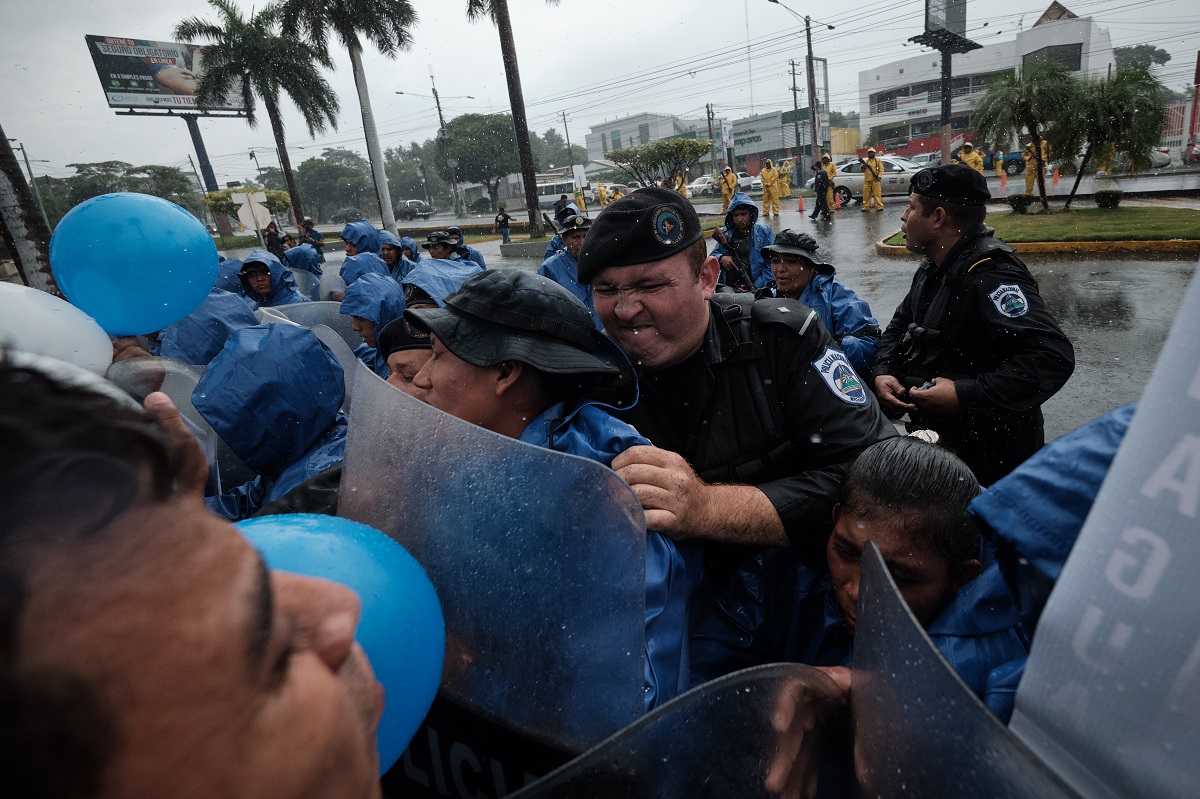
Police officers and riot police pushing the citizens trying to march freely, a constitutional right. Photo: Carlos Herrera
Accustomed to controlling the streets, in 2018, the government responded to the citizen protests of the April Rebellion with massacre and repression, with 325 killed between April and September of that year, dozens of disappearances, thousands injured, more than 1600 political prisoners, of whom more than one hundred remain in prison and more than one hundred thousand exiles who are fleeing political persecution.
The Ortega regime is also accused of committing crimes against humanity and systematic violations of human rights, according to extensive reports by national and international defenders, including the Inter-American Commission on Human Rights (IACHR), through the Interdisciplinary Group of Independent Experts (GIEI), which the regime expelled in December 2018, prior to the presentation of its devastating report.
The country is also approaching fourteen years of Ortega regime under a de facto police state, which nullifies democratic freedoms and constitutional rights, including persecution against the Catholic Church and NGO’s, illegal confiscation of media, annulment of the right of association, and a trident of punitive laws passed in 2020.
The regime is attempting to normalize a de facto police state, established in September 2018, when the government declared citizen protests illegal. Since then, all attempts at protest have been denied, suppressed, or repressed, while dozens of Nicaraguans are besieged in their homes or persecuted by police or regime supporters.
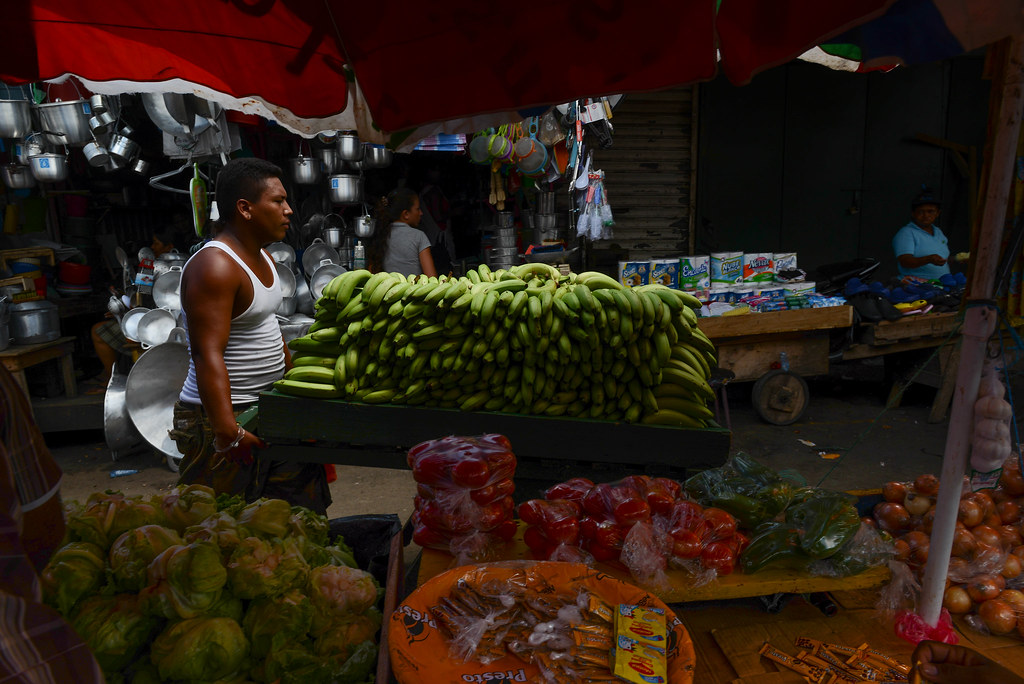
Photo: Carlos Herrera | Nicaragua
It has also been three consecutive years of economic recession, which has meant a massive increase in poverty and unemployment, property invasions and confiscations, fiscal terrorism, tax laws and "confiscatory" municipal taxes, negligence and the spread of the covid 19 pandemic, which includes the attempt to hide nearly 8000 deaths from the new coronavirus.
In the third consecutive year of economic recession, with the impact of the pandemic on top, Nicaragua added some 230,000 unemployed, adding to the half a million jobs lost between 2018 and 2019, according to estimates by the Nicaraguan Foundation for Economic and Social Development (Funides).
To the precedents of the suspension of the legal status of the opposition parties (such as the Sandinista Renovation Movement and the Conservative Party in 2008), the disqualification of the presidential formula of Luis Callejas and Violeta Granera or the dismissal of the deputies of the PLI Alliance in 2016, Ortega now adds the "guillotine law" of 2020, and the lack of guarantees for free, fair, transparent and observed elections, in an attempt to continue in power.
The initiative of the "defense of the rights of the people to independence, sovereignty and self-determination for peace," law, approved at the end of December 2020, cancels Ortega's political competition for the general elections of 2021 and was approved by the National Assembly despite being "illegal," because it violates the Political Constitution of Nicaragua and the international treaties to which the country is subscribed.
The bill establishes that "Nicaraguans who lead or finance a coup d'état, who alter the constitutional order, who encourage or urge terrorist acts, who carry out acts that undermine the independence, sovereignty, and self-determination" of Nicaragua will not be eligible for elected office. This argument inhibits the country's opposition, which the regime accuses of a "failed coup attempt," in reference to the massive citizen protests that erupted in April 2018.
This article has been translated by Ana María Sampson, a Communication Science student at the University of Amsterdam and member of our staff*
Archivado como:
PUBLICIDAD 3M
Confidencial es un diario digital nicaragüense, de formato multimedia, fundado por Carlos F. Chamorro en junio de 1996.
PUBLICIDAD 3D